For the uninitiated, Feng Shui is an ancient Chinese practice about the spatial relationship between a person and their environment. Claiming to aid the flow of energy in positive directions, the goal of Feng Shui is to promote harmony within one’s quarters. In fact, it’s reputed by practitioners to improve finances, mood and general quality of life.
Not sure where to begin? Follow these simple tips to help improve Feng Shui throughout every room of your home. Because if shifting some furniture will boost your happiness, what are you waiting for?
Related: 15 Kitchen Feng Shui Tips for Organizing the Heart of Your Home

The Front Porch
When it comes to Feng Shui, the front porch is especially important. After all, it’s the first “room” of the home! The doorway in particular is the path through which good energy is invited into the home. So, it’s key to keep the front of your house clear and uncluttered to allow for maximum energy flow. In addition, a front porch that looks open and inviting, as opposed to a ramshackle porch that screams “go away,” will generate more positive energy. As for colour schemes, a bright front door is said to attract the most good energy.
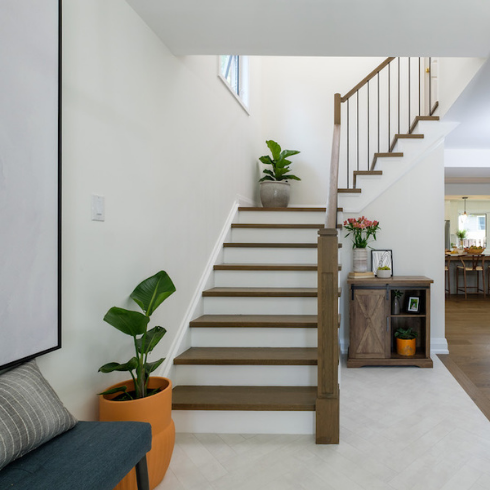
Front Foyer
Foyers tend to become easily overrun with shoes, coats and backpacks. This is something that should be avoided when it comes to Feng hui; clutter in the front hallway can make one feel restricted energy-wise and general messiness is believed to attract negative energy. The front entryway is an ideal place to hang artwork or family photos – something that will prove uplifting and attractive upon entering the home. Painting of landscapes are recommended, as they represent additional windows in the home.
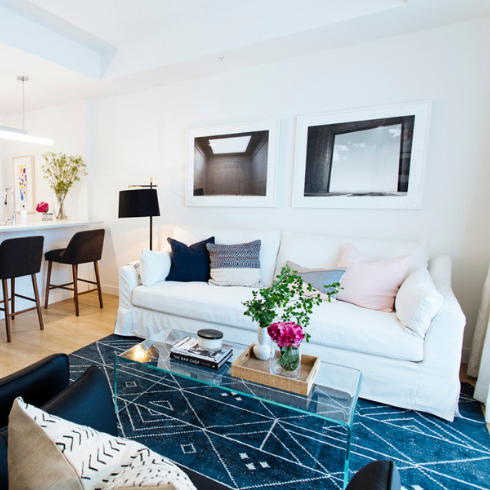
Living Room: Sofa Tips
The living room is typically the first room entered upon coming into a home, which makes it one of the most vulnerable spaces in terms of Feng Shui. A good rule of thumb in a Feng Shui living rooms is to place the couch against a wall. On the flip side, a sofa “floating” in the middle of the room will interrupt the energy flow. A couch that’s anchored on the side of a wall is said to lend support and stability to those who live there.
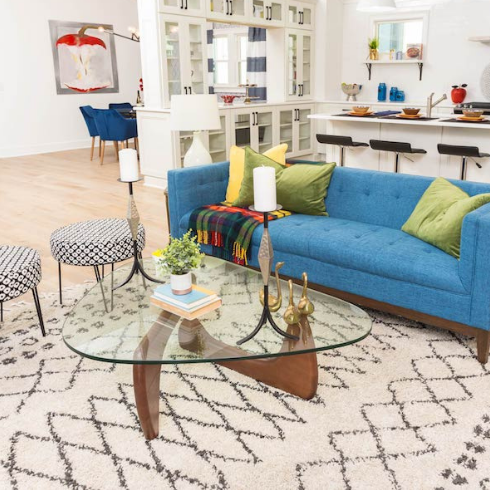
Living Room: Coffee Tables
Any type of screen should be covered or hidden, as they send off reflections much like a mirror does. In Feng Shui terms, mirrors are considered risky ventures in that, if incorrectly placed, they can send energy flowing in the opposite direction and back outside. In addition, circular, oval or uniquely-shaped coffee tables, like the one pictured here, are preferred as energy flows around that shape better than a hard-cornered square or rectangle.
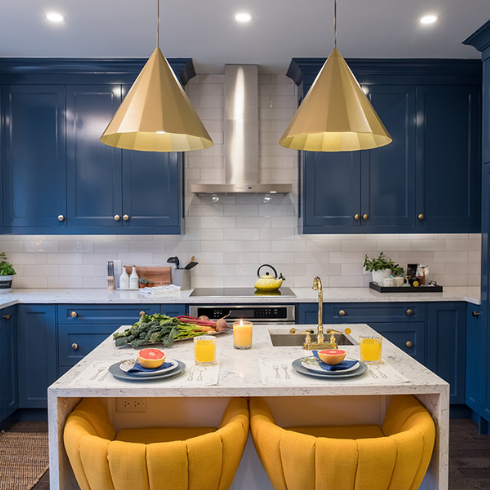
An Uncluttered Kitchen
By now you’ve probably gathered that any kind of clutter is to be avoided at all costs for Feng Shui purposes. This is especially true when it comes to kitchen countertops. Anything, absolutely anything, that can be stored away, should be. This will keep surfaces clear, so as not to inhibit the energy flow. If you’re not sure what to keep or toss, consider these ways you can organize your kitchen like Marie Kondo.
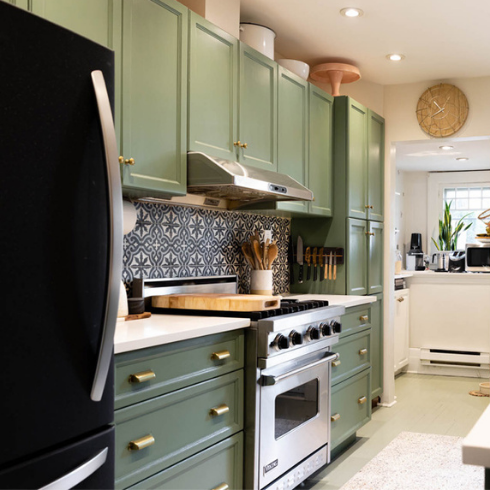
An Uncluttered Fridge
Any family with kids tends to have all manner of photos, reminders, lists and things alike stuck on the fridge with magnets — a Feng hui no-no! A cluttered refrigerator surface invites negative energy, as does a refrigerator interior that’s cluttered with leftovers and unopened condiments. Keep things neat and tidy. You’ll be a lot happier for it.
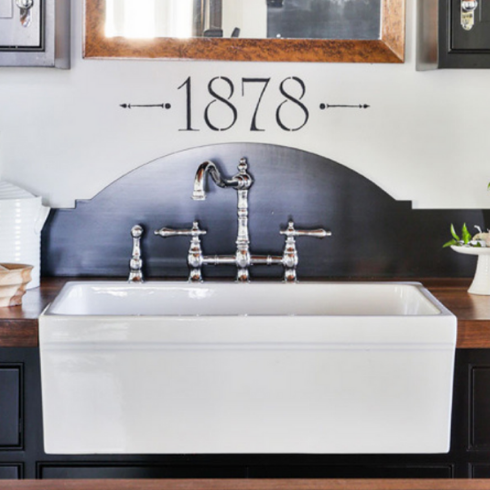
The Kitchen Sink
A dripping faucet or leaking tap should be fixed immediately; in Feng Shui terms, this symbolizes your money draining away, which is never a good thing. Learn more about how to fix a leaky faucet (and a few more quick home repairs you can do yoursel).
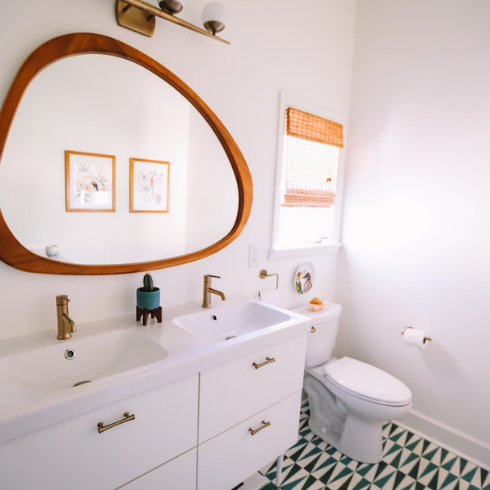
Bathrooms
The key thing to remember in the bathroom is to keep the door closed and the toilet lid down. The toilet is believed to flush all positive energy out of the home, a situation that is lessened once the lid is kept down and the bathroom door remains shut. Think: Out of sight, out of mind, when it comes to this space in your house.
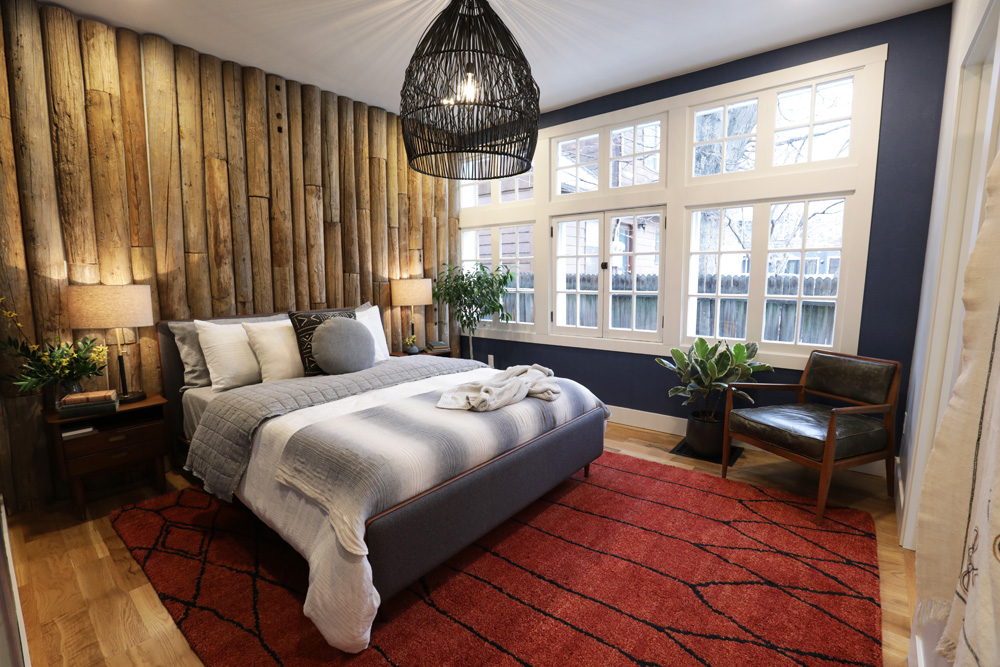
Bedrooms
Energy flows best in bedrooms that are open and uncluttered and are also comfortable and pleasing to the eye. Windows that bring in lots of natural light will also contribute to the flow of positive energy. For more inspiration, you can also check out these rejuvenating zen bedrooms that will help you de-stress.
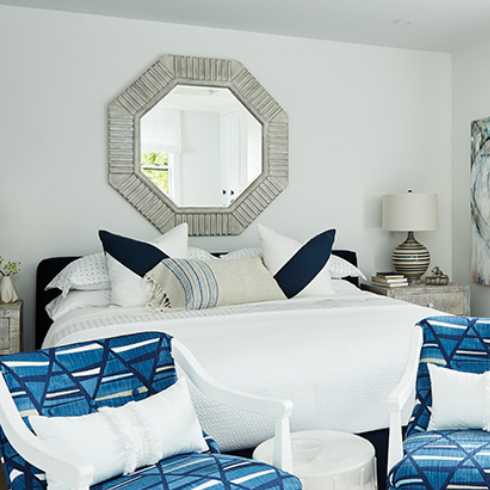
The Bed
When it comes to Feng hui, the bed is the most important piece of furniture in the entire home, which makes sense considering how many hours you spend in it on a daily basis. A solid headboard, preferably made of wood, will give your body a feeling of support as you sleep. Metal headboards, with railings, should be avoided. They can also be subtle, like the one pictured here, that is easily covered by throw pillows.
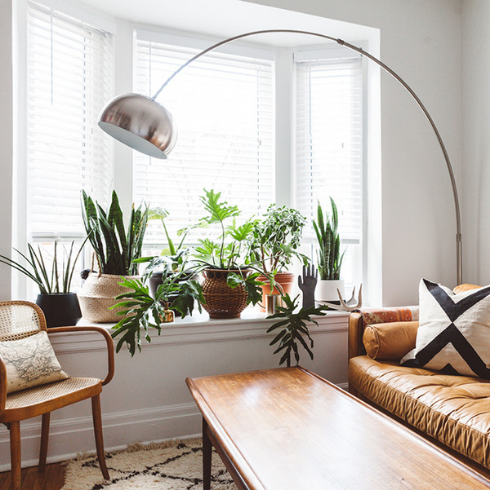
Windows
Windows are a little dicey area when it comes to Feng Shui; having too many windows is bad, but so is having too few. Balance is important, but so is ensuring windows remain clean. Windows represent how we see the world outside — and dirty, dingy windows that offer a fuzzy sightline will ultimately cloud that view. Ensure that you keep your view as clear as possible by routinely cleaning your windows, both inside and out. Try to clean the interiors with some glass cleaning spray and a microfiber cloth during your weekly cleaning routine. Try to clean the exteriors roughly once a month — you may need heavier-duty cleaning tools, such as a sponge, a squeegee and a bucket of hot water with cleaning solution.
Home Network your inbox.
By clicking "SIGN UP” you agree to receive emails from Home Network and accept Corus' Terms of Use and Corus' Privacy Policy.




